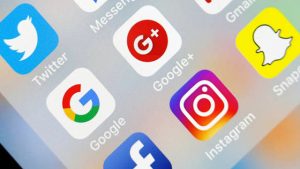Home » Commentary » Opinion » The biggest threat to our democracy is government, not social media
· Spectator
 Social media has been blamed for an epidemic of damaging misinformation that has supposedly poisoned political discourse. But the real threat to free speech and political debate comes from over-zealous and ill-advised regulation.
Social media has been blamed for an epidemic of damaging misinformation that has supposedly poisoned political discourse. But the real threat to free speech and political debate comes from over-zealous and ill-advised regulation.
Mainstream opinion insists social media has damaged democracy by creating a polarised, toxic environment devoid of nuance and fact.
The concern is such the Australian Competition and Consumer Commission has recommended digital platforms implement a code to counter disinformation, and a regulatory body (like the ACMA) oversee platforms’ “voluntary initiatives… to enable users to identify reliability, trustworthiness, and source of news content.”
But the initiatives introduced by tech companies to address misinformation have already been significant.
Facebook started working with third-party fact-checkers in 2018 to verify content. In an attempt to mitigate accusations of political bias, they are increasingly reducing human intervention and relying more on software to handle issues of content moderation.
Google, announced last year they would be committing US$300 million to combat misinformation and support “quality digital journalism.”
Moreover, the suggestion that a regulatory body oversees their news credibility measures does not negate the concerns of bias.
Google and Facebook have often been accused of favouring their own business partners in searches and news feeds. A regulatory body such as the ACMA could easily fall prey to similar accusations. Why is having unelected bureaucrats better than unelected tech workers?
Further, speech that is defamatory, abusive, or bullying is already prohibited on these platforms. If social media companies are held responsible for all the content on their platforms, the chances increase that they extensively censor all speech.
Having sources rated as ‘trustworthy’ has the potential to risk disadvantaging smaller, independent news outlets, as such a designation would presumably favour well-established outlets and brands. The ACCC report references the importance of news ‘brands’ several times.
Ironically, given Australia’s preoccupation with media concentration, this could lead to less viewpoint diversity.
Further, regulatory oversight into misinformation will likely restrict new start-ups. Compliance costs will be great and will create a huge barrier for entry. This is most likely why Facebook is embracing the idea of regulation.
Not only are the ACCC’s solutions ill-advised, but they are predicated on the existence of a problem which is misunderstood or overstated.
Social media companies are often accused of having created an environment in which misinformation is pervasive and harmful. Media scholar, Professor Ronald Deibert outlined that social media is replete with “fresh scandals or outlandish claims” which mix “fact with fiction.”
However, concerns about misinformation have been perennial. As internet governance expert Professor Milton Mueller has argued, there is the perception social media is the cause of problems such as misinformation and bullying. Whereas, far more likely, these technologies have created a hyper-awareness of already existent problems.
This hyper-awareness did not even begin with the advent of social media. It was not until late 2016 that ‘fake news’ significantly infiltrated the lexicon.
The timing of the surge in popularity of the term is important. The alleged proliferation of fake news has often been blamed for the Trump and Brexit victories.
Far from being an unbiased, subjective term, ‘fake news’ has become a pejorative to discredit election victors.
The concern about fake news is entwined with the idea that social media creates ‘filter-bubbles’ or ‘echo-chambers.’ That is, users retreat into online communities and only interact with people who share their views.
However, the extent to which this happens is unclear. Some researchers suggest online communities re-invigorate public debate by democratising communication and exposing people to a variety of online communities.
‘Filter-bubbles’ are also not exclusive to the online world. People who consume a limited number of offline sources risk only receiving information which re-affirms their views.
In an online environment, there is greater capacity to seek out alternative viewpoints with some evidence suggesting social media users are more often exposed to a variety of news sources.
The concerns about fake news, echo-chambers and filter-bubbles are, at best, exaggerated. There is no evidence to suggest social media is unduly influencing Australian elections – as I have written previously, popularity on social media does not translate into success at the ballot box.
Tech companies are already addressing the speech issues on their platforms. The question to ask is: what is the ACCC trying to achieve?
The issues they are concerned about are either already covered by law or tech company policy — or are just not a problem.
Tech companies have issues they need to — and mostly are — addressing. But, the biggest threat to free speech and democracy comes from excessive and unnecessary regulation.
Monica Wilkie is a policy analyst at the Centre for Independent Studies.
The biggest threat to our democracy is government, not social media